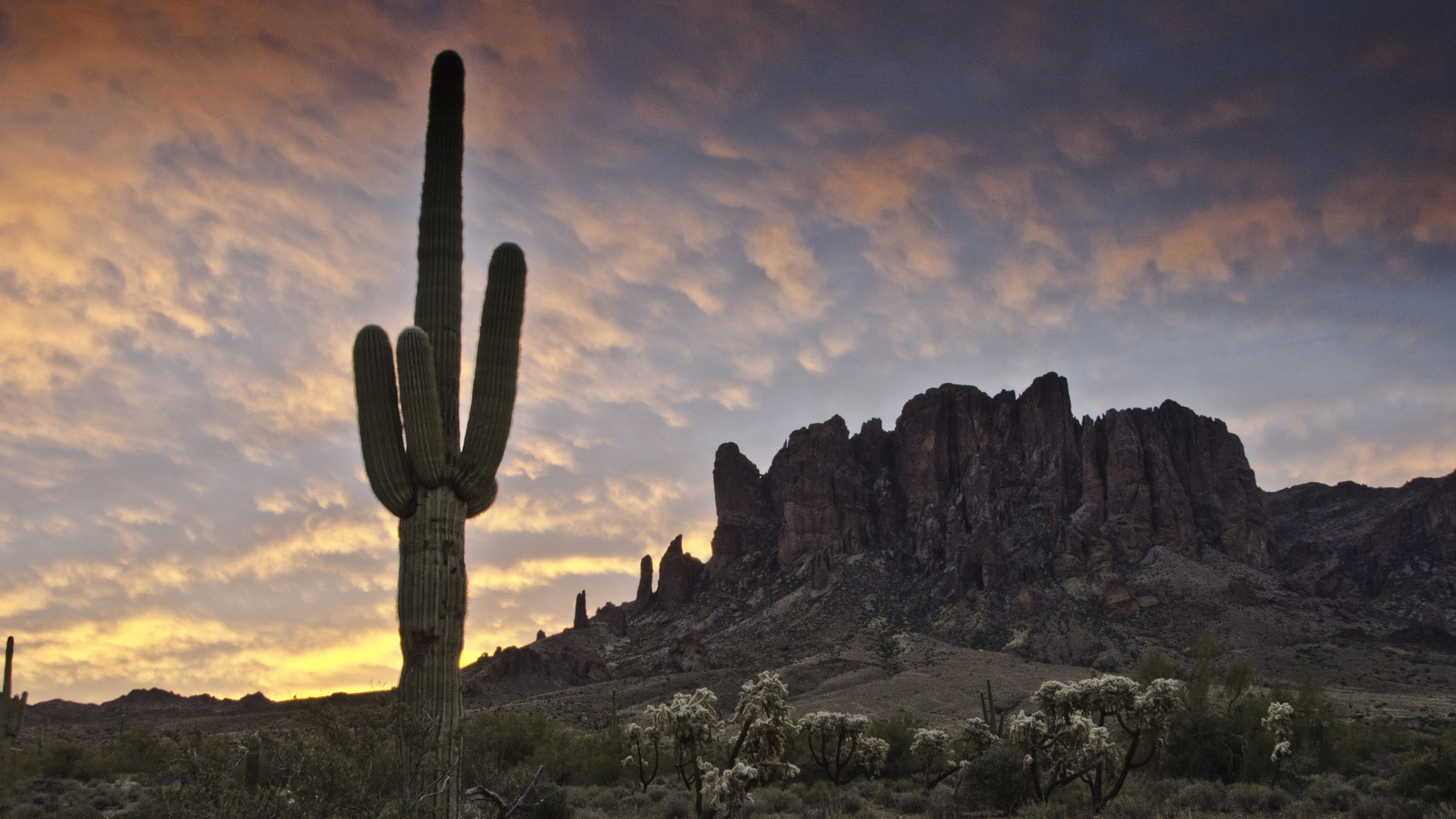5 reasons you need a camping knife: from mealtime to the campfire
We reveal our 5 reasons you need a camping knife for your adventures, from preparing backcountry meals to making sure you don’t become one
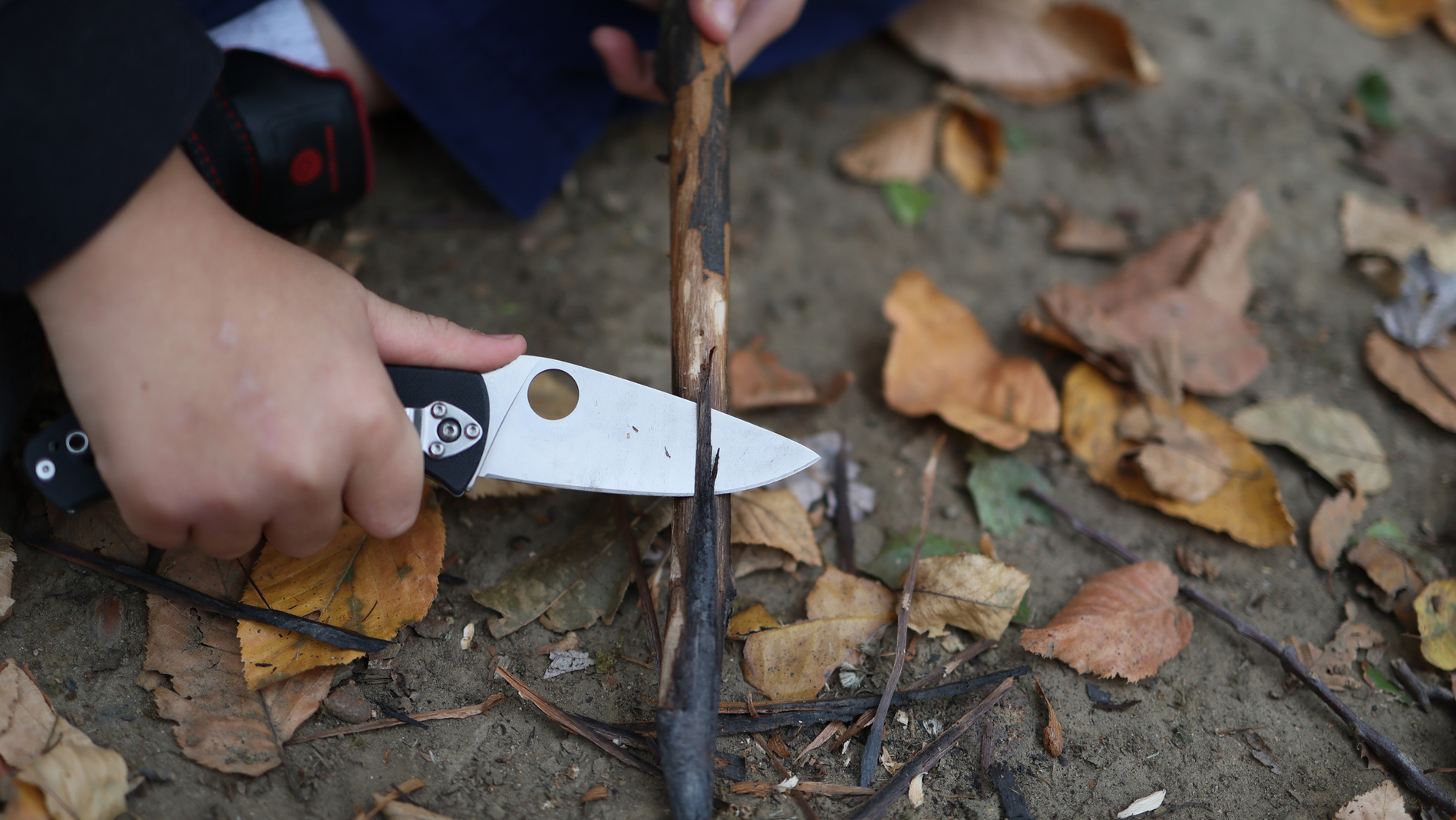
From essential applications like preparing food and processing firewood, to less obvious but equally rewarding uses, like whittling wood into lovely mementos of a successful camping trip, there are several reasons you need a camping knife. These small, compact, foldable blades come in handy time and time again in the backcountry, covering many bases from enjoyment to survival.
Yes, survival! There are quite a few accounts of people using camping knives to fend off or even kill attacking predators. One example is the incredible true story of Gene Moe, a hunter who survived a brown bear attack in Alaska by stabbing the beast under its jaw bone.
Of course, this is an extreme example – the most exciting thing you’re likely to butcher with your camping knife is the evening meal. However, whether you’re packing the tent and venturing into the wild on a solo backpacking mission or you’re taking the kids to discover a new national park, your camping knife will have you covered for multiple scenarios.
Meet the expert
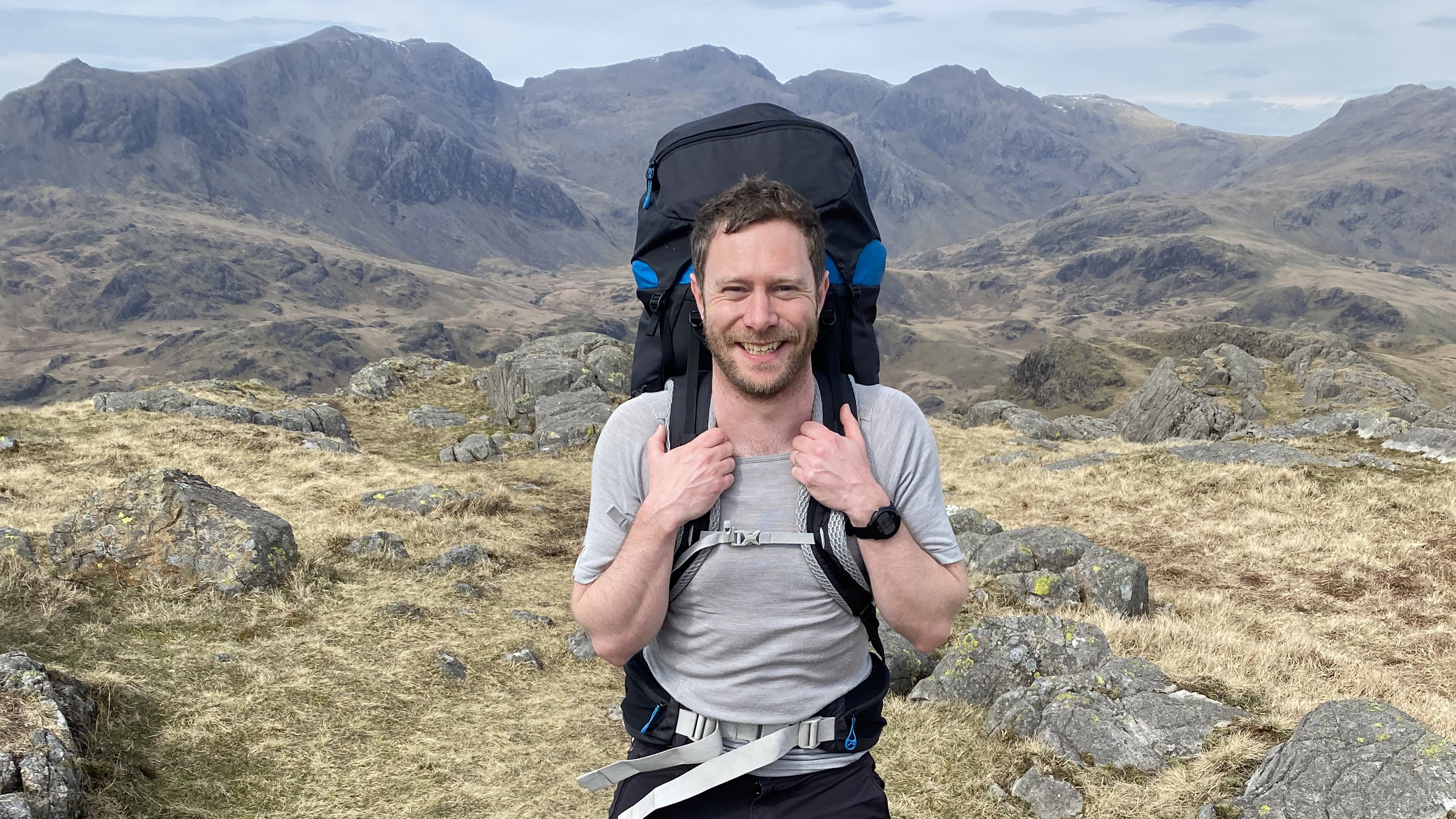
As someone who enjoys various forms of outdoor adventure and regularly enjoys a camping trip, Alex certainly values the functionality of a quality camping knife. As a qualified Mountain Leader, he knows the worth of any practical innovation that makes time in the backcountry more straightforward, while he thoroughly enjoys cooking outdoors too.
What is a camping knife?
- A camping knife is usually a foldable, lightweight pocket knife
- Camping knives are legal as everyday carry in most countries
- They usually feature high quality stainless steel blades
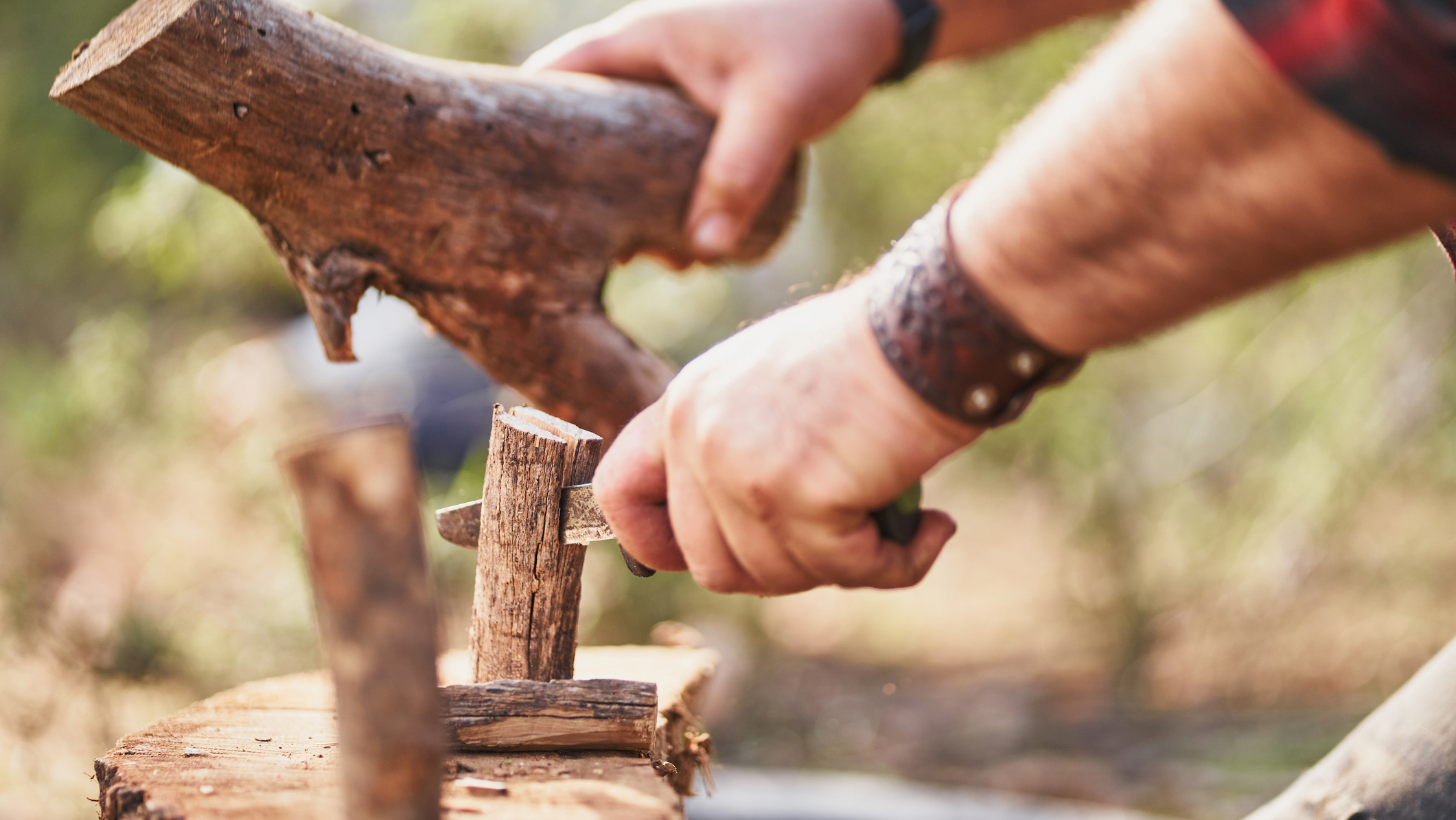
A camping knife is usually a folding pocket knife with a quality steel blade that makes it ideal for all kinds of tasks. The portability of camping knife makes it a real winner with lovers of the outdoors. It can be stowed in the pocket of your hiking pants or jacket just like a multitool. A standard camping knife will also be legal as everyday carry in most countries, which makes them preferable to a Crocodile Dundee style blade, which we wager you’d have trouble getting through security at LAX.
What sets the best camping knives apart from the rest is the quality of their steel alloy blades, which you’ll need if you want it to perform tasks like whittling. Of course, if used for such endevors, every now and again you’ll need to sharpen your camping knife with a whetting stone or a honing rod. They’re usually nicely ergonomic and feature grippy handles that make processing items a breeze.
Here are our 5 main reasons you need a camping knife for your adventures this year.
1) to embrace your inner Chef Ramsey
- From slicing veg and breaking eggs to gutting fish, a camping knife is useful during food prep
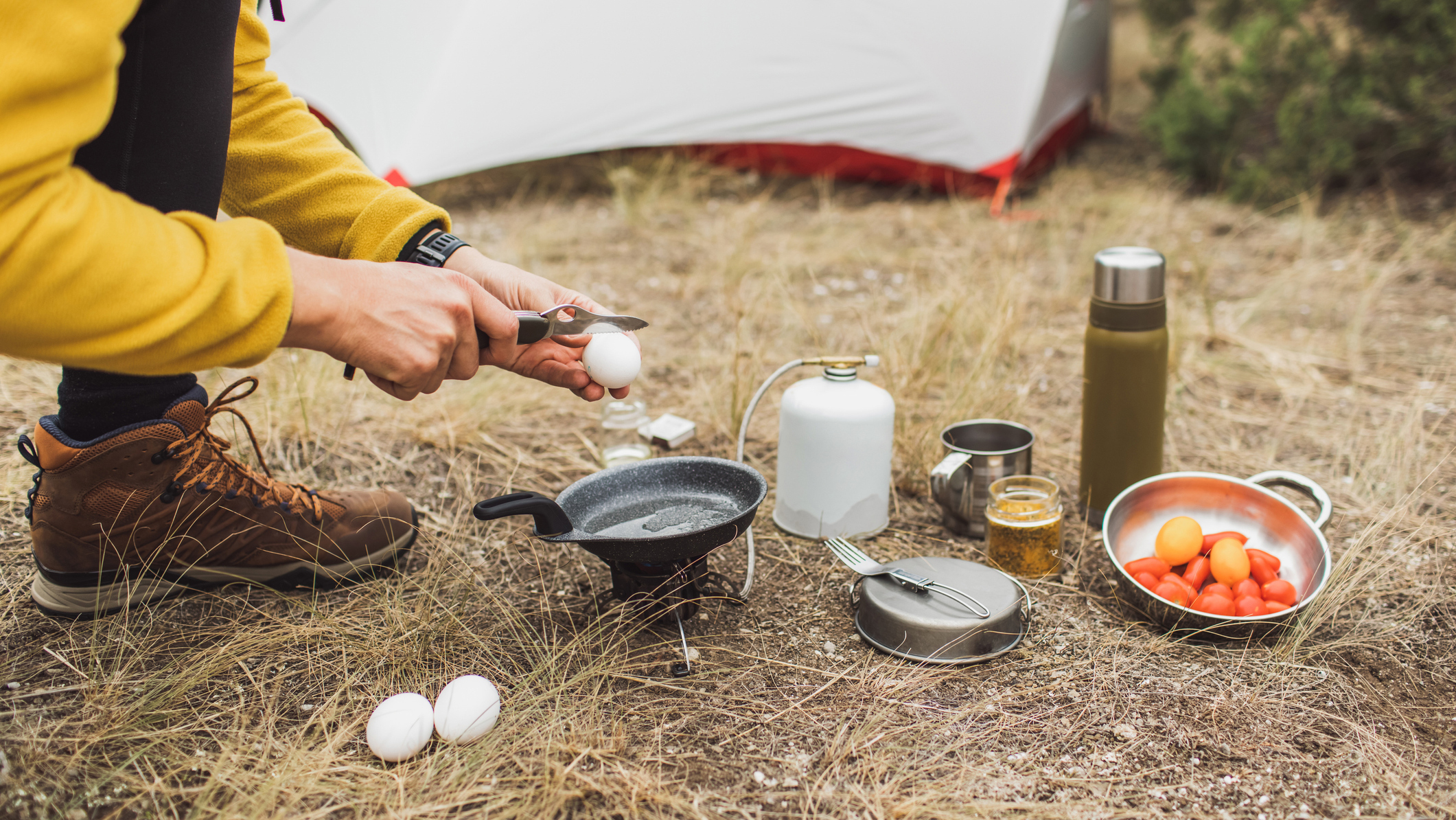
Now, when I say embrace your inner Chef Ramsey, I don’t mean spend the evening swearing at everyone at the campsite for not living up to your standards. What I mean is that, with a decent camping knife, you can really go for it in your outdoor kitchen.
Advnture Newsletter
All the latest inspiration, tips and guides to help you plan your next Advnture!
Cooking outdoors can be the highlight of any camping trip. You might have the fanciest double-burner stove in California and more camping utensils than you can shake a whisk at, but if you don’t have a quality blade, you’re not going to be able to prepare your al fresco feast with quite the same panache. From slicing veg and breaking eggs to gutting fish, as sharp blade that sits beautifully in the hand is easily preferable to lesser tools.
2) for a spot of whittling
- Whittling is using a knife to shape wood into useful or decorative objects
- A camping knife allows you to practise whittling on your trips
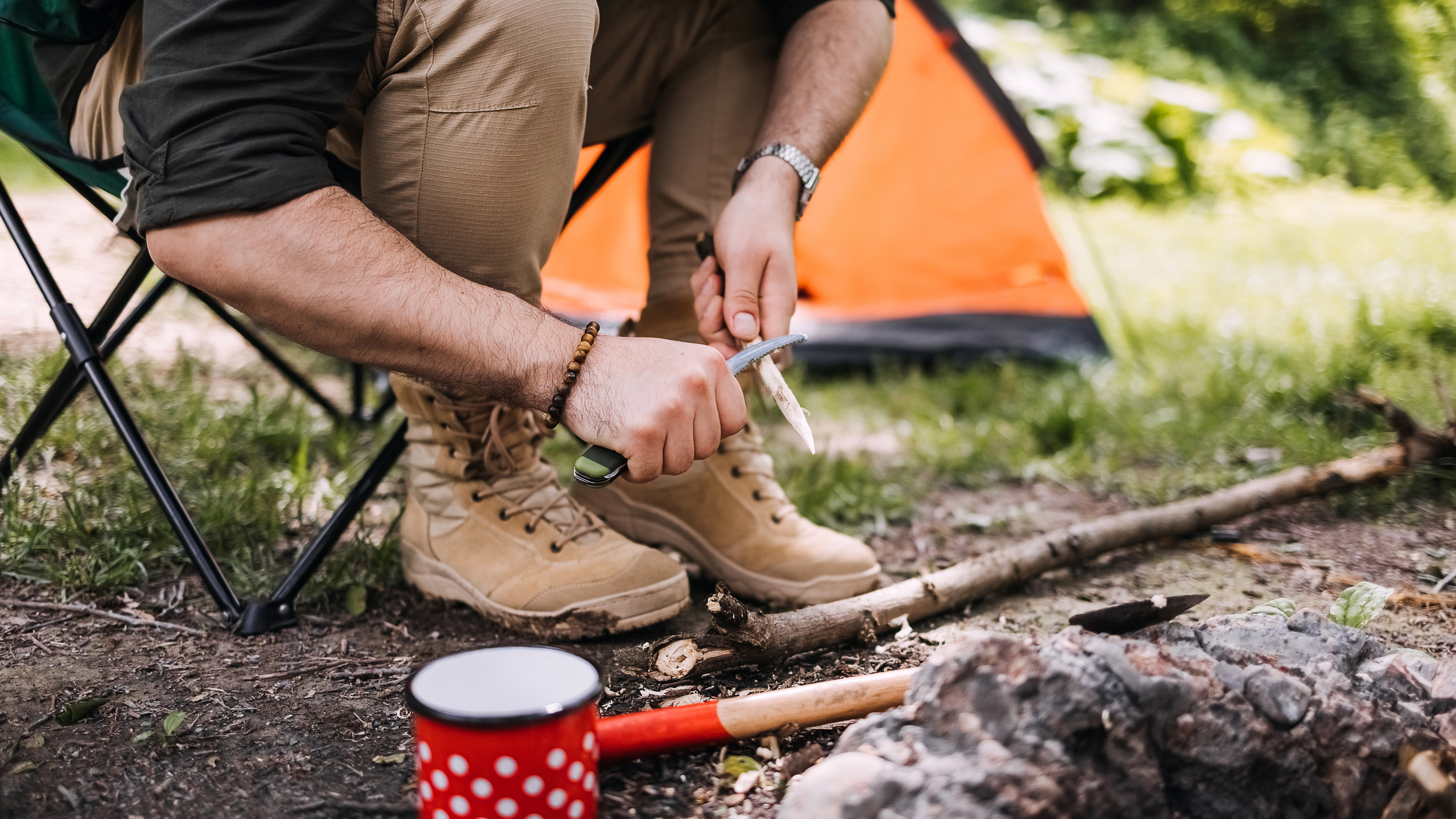
Whittling is an incredibly satisfying and rewarding activity that promotes mindfulness too. Humans have been whittling, shaping wood into useful or decorates forms, for thousands of years. A little whittling on your camping trip, along with the ritual of the campfire, is a way to reconnect with the deep past and what it is to be human. A word of warning though, once you’ve sculpted your first wooden spoon, whittling can become a little bit addictive.
You may use your newfound whittling skills and put them to practical use by crafting some kitchen utensils or even your own DIY tent stakes, though it’s more likely you’ll get whittling just for the fun of it. It’s a great skill to teach older children; after all, camping with teenagers can be challenging but not if you can involve them as much as possible. You could carve mementos to remember your trip by or create a mascot for your basecamp and enchant it with magical powers to ward off evil spirits (if you’re feeling particularly sorcerous, of course).
3) to get that campfire going
- A camping knife is great for processing kindling, smaller twigs and branches
- It can also be used to create a spark with a piece of flint or a char cloth
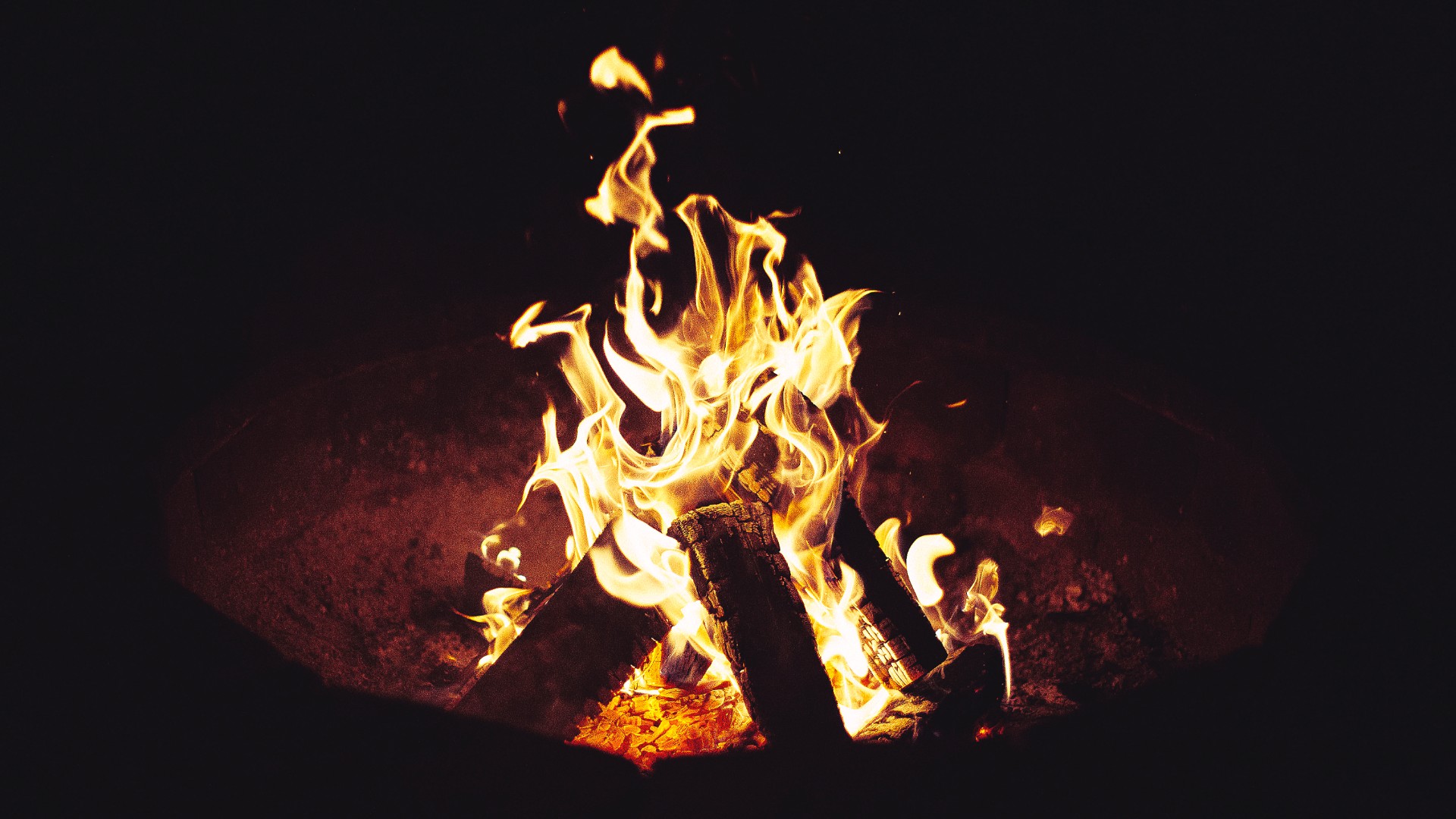
While our early ancestors created useful tools by whittling wood, this innovation had nothing like the impact of when they first started igniting campfires. It’s thought that the ability to cook food had a profound effect on the evolution of our species, enabling us to become the all-conquering force we are today.
When it comes to starting the campfire, a camping knife has many uses. Firstly, you can process small bits of wood for tinder, shave dry scraps off for kindling and shape those crucial marshmallow roasting sticks. (It’s just not a proper campfire unless you’re making s’mores!) Another use – and this is really one for the bushcraft show-offs – is to use the blade with a flint or char cloth to create a spark to ignite the fire. Note: matches and lighters are also available.
4) it's your survival buddy
- A camping knife can assist you when bushwhacking or creating a shelter
- It's a useful addition to a first aid kit too and can be used to cut bandages and dressings
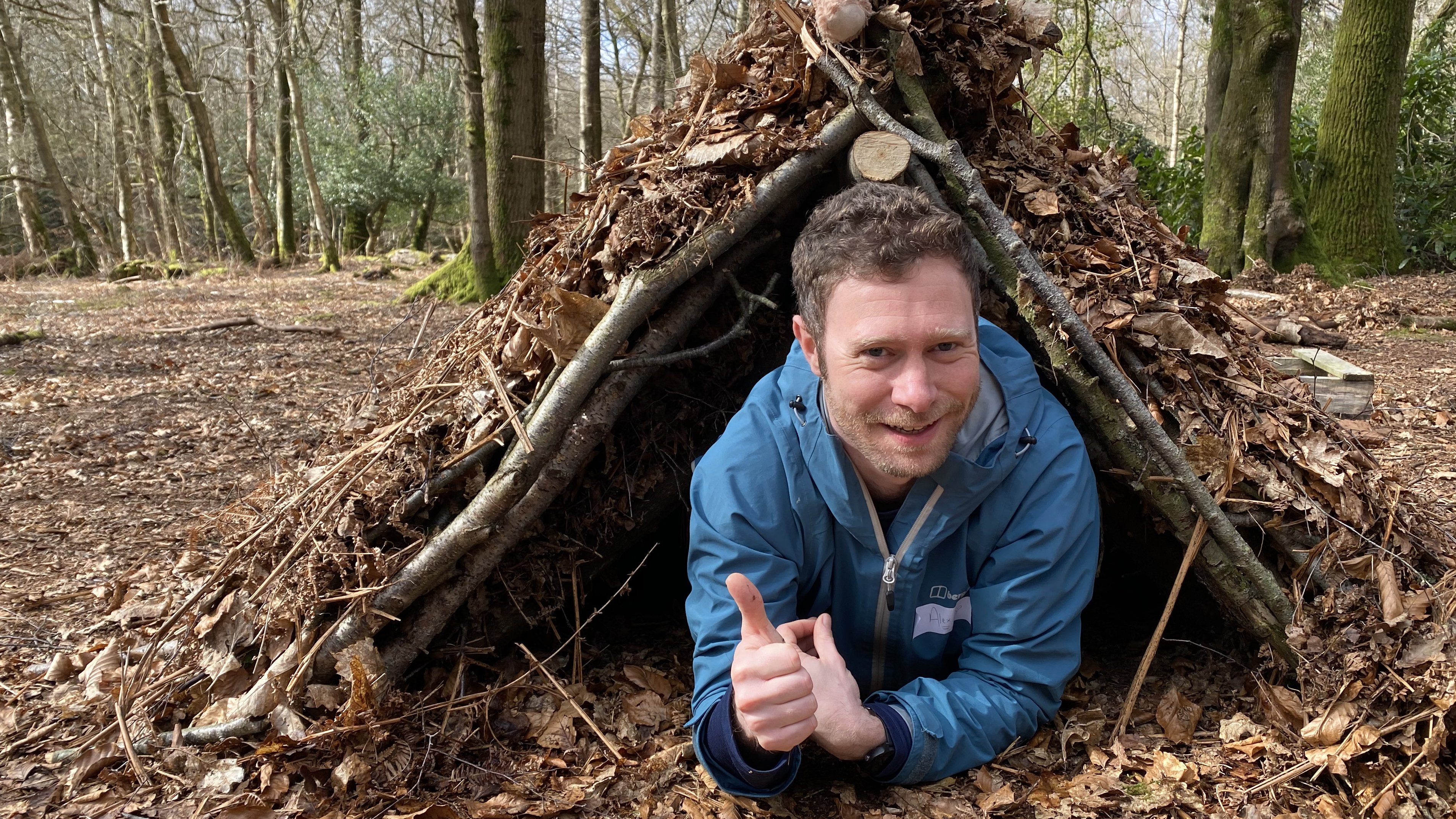
Speaking of bushcraft show-offs (see image above), a camping knife is useful when it comes to survival in the wild. While it obviously lacks the cutting power of a camping saw or the splitting power of a camping axe or hatchet, a quality knife is still your friend when it comes to bushwhacking your way through the wilderness. Need to erect a makeshift shelter for the night? You can cut stray limbs from the branches you collect in order to shape your creation.
In an emergency situation, it’s a friend to your first aid kit. You can use your knife to cut dressings, cut away clothing and slice open packaging (some blizzard jackets are notoriously difficult to open up in a hurry).
5) it's a weapon in any scary animal encounters
- The fast-to-hand nature of a camping knife makes it a good tool in self-defence situations
- This should be a last resort, when all other strategies have been exhausted
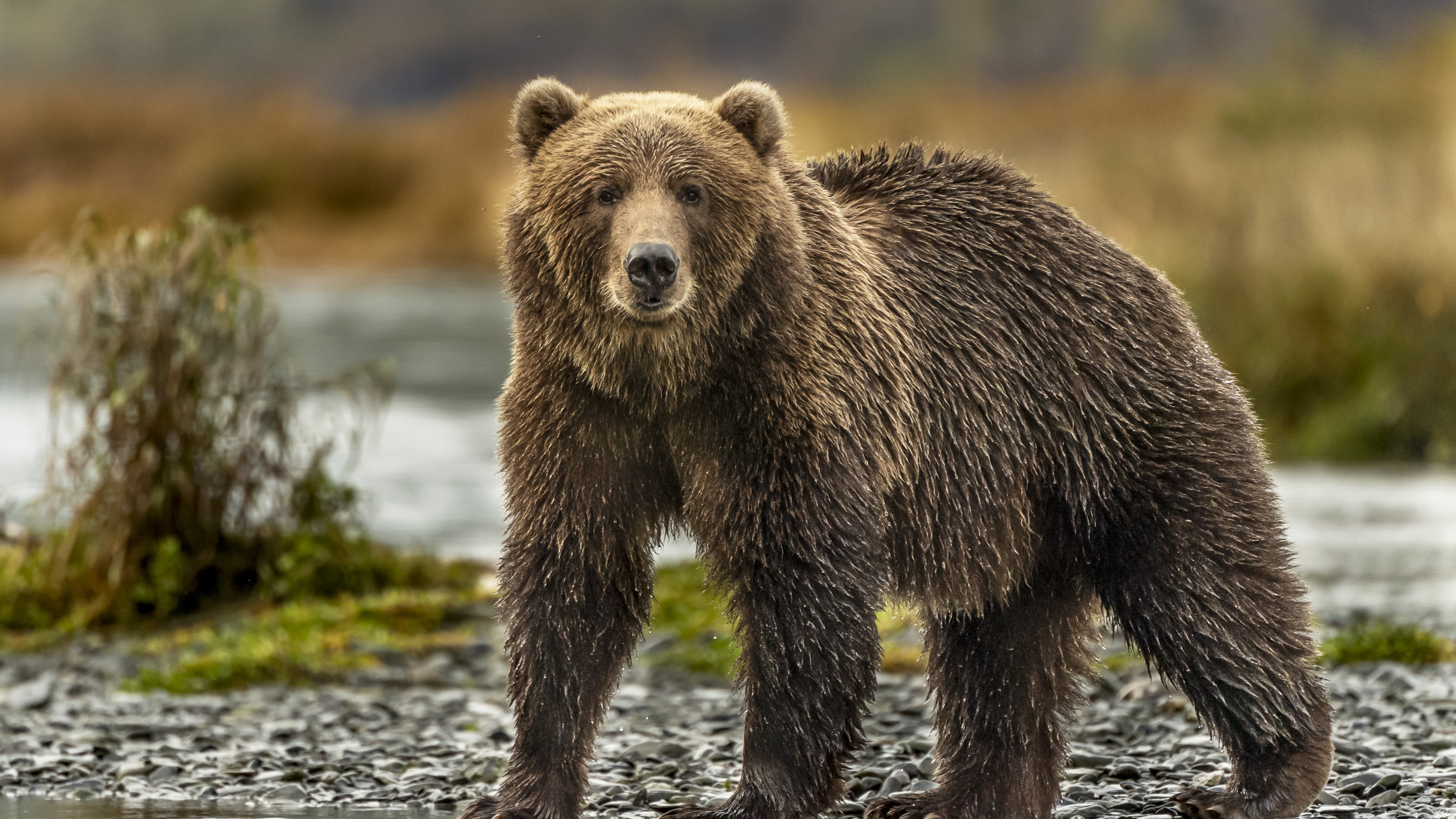
The best way to avoid any scary animal encounters is to respect the local wildlife and give any potentially dangerous beasts a wide berth. You can also minimize the risk of unwanted visitors snooping around for food by properly learning how to store food when camping.
However, the fast-to-hand nature of a foldable camping knife means that you’ll be able to grab it as a last resort in any face off with an animal, just like hunter Gene Moe did. These are situations where standing your ground is the better option than running away.
Notice the phrase last resort in the preceding sentence. Fighting back is always your last option once all other strategies have been exhausted, including making yourself bigger – which the knife will also help you with – and backing away slowly. Animals that you shouldn’t run from are usually apex predators like bears, wolves and mountain lions. If you run, they’ll think you’re prey, their natural predatory insticts will kick in and they’ll chase you, armed with a new dose of adrenaline. All the animals above run much faster than any human.
Alex is a freelance adventure writer and mountain leader with an insatiable passion for the mountains. A Cumbrian born and bred, his native English Lake District has a special place in his heart, though he is at least equally happy in North Wales, the Scottish Highlands or the European Alps. Through his hiking, mountaineering, climbing and trail running adventures, Alex aims to inspire others to get outdoors. He's the former President of the London Mountaineering Club, is training to become a winter mountain leader, looking to finally finish bagging all the Wainwright fells of the Lake District and is always keen to head to the 4,000-meter peaks of the Alps. www.alexfoxfield.com

